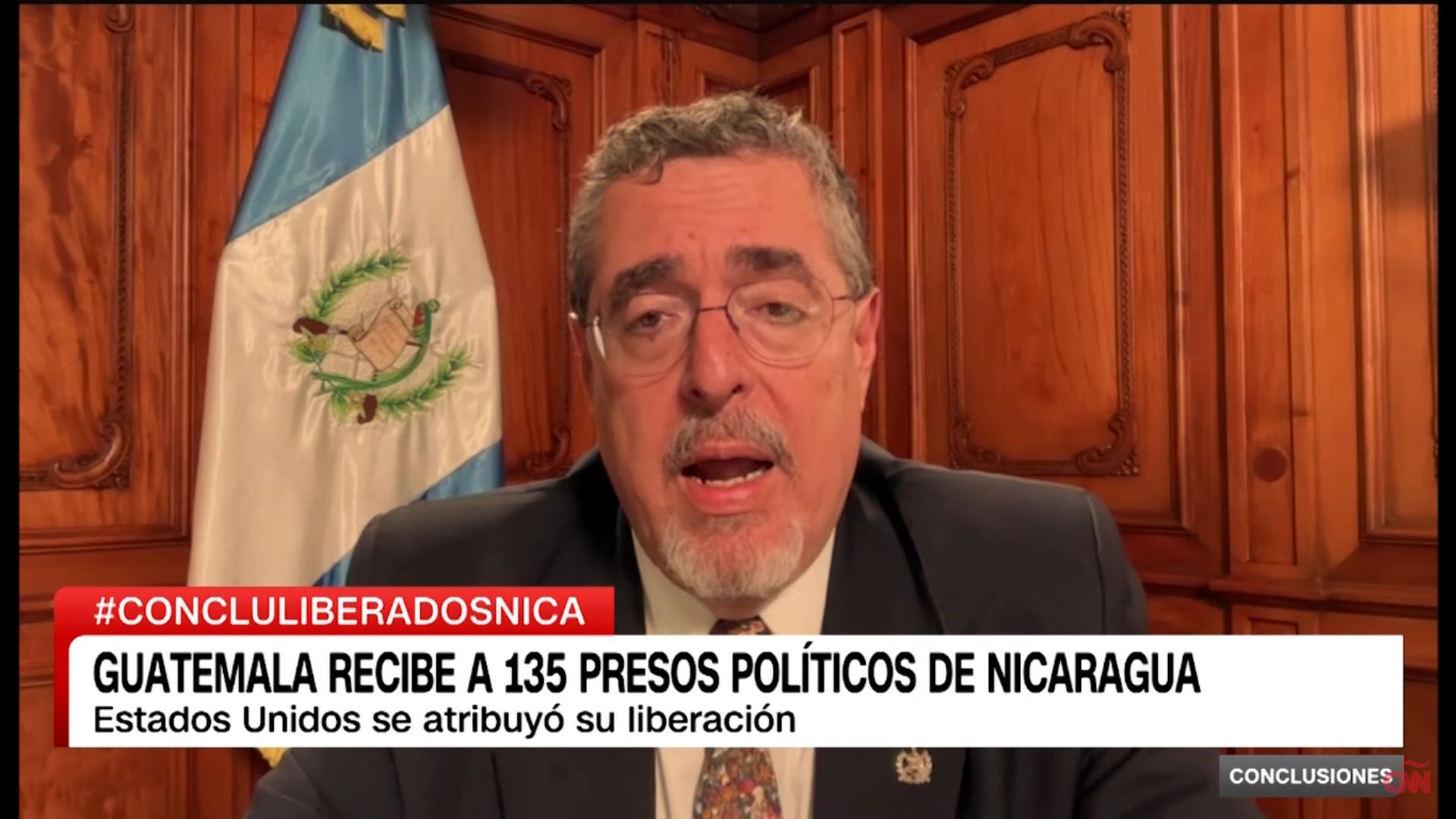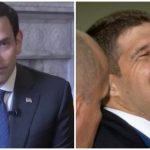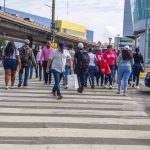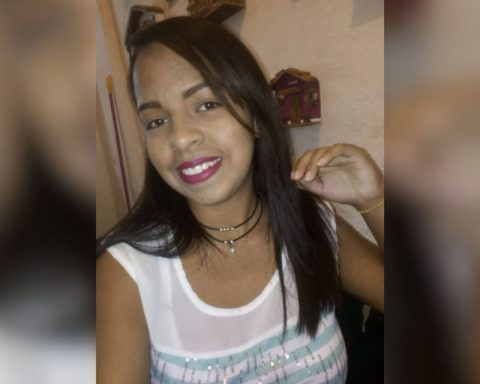Guatemalan President Bernardo Arévalo said that Guatemala was not part of a third-party agreement with the governments of Nicaragua and the United States and that it is only a matter of hosting political prisoners under the safe mobility program that allows a temporary stay for citizens of El Salvador, Honduras and Nicaragua (CA4) to arrange immigration documents and then it will be the exiles who decide in which country they will reside.
In an interview given by Arévalo to the program Conclusions, from CNNassured that Guatemala yielded to a request from the United States to temporarily receive the group of 135 Nicaraguans considered political prisoners in Nicaragua and who were in jail by the Ortega dictatorship; however, he clarified that the negotiation for their release was an agreement between the United States and Nicaragua, Guatemala did not maintain any contact with the Ortega government.
The Guatemalan president indicated that among the 135 political prisoners there are religious figures, academics, journalists, indigenous leaders and other social actors who have in common the protest they were carrying out against the authoritarian drift of the Nicaraguan government and in defense of their civil rights. “For us it has been an expression of solidarity with our Nicaraguan brothers and our commitment as a government to democracy and freedom throughout the world,” he said.
Arevalo said it is Guatemala’s responsibility to support those facing similar struggles in their own countries. The Guatemalan government is critical of the dictatorship of Daniel Ortega and Rosario Murillo, accused by the international community of committing crimes against humanity in Nicaragua. In Central America, the dictatorial couple only has the support of the leftist president of Honduras, Xiomara Castro.
Related news: These are 78 of the 135 political prisoners exiled to Guatemala by the Ortega-Murillo dictatorship
The group of former Nicaraguan prisoners landed yesterday at La Aurora airport in Guatemala City. The White House said it secured the release of these prisoners, among them 13 members of the evangelical organization Mountain Gateway, lay Catholics, students and other people that Ortega and Murillo “consider a threat to their authoritarian regime.”
The release was made “on humanitarian grounds,” National Security Adviser Jake Sullivan said in a statement, two months before the US presidential election.
Washington “appreciates the leadership and generosity of the Guatemalan government in graciously accepting these Nicaraguan citizens,” it added.
Eric Jacobstein, a senior U.S. State Department official involved in the negotiations for the release of the 135, said that “the Nicaraguan regime got nothing” in exchange for their release.
















